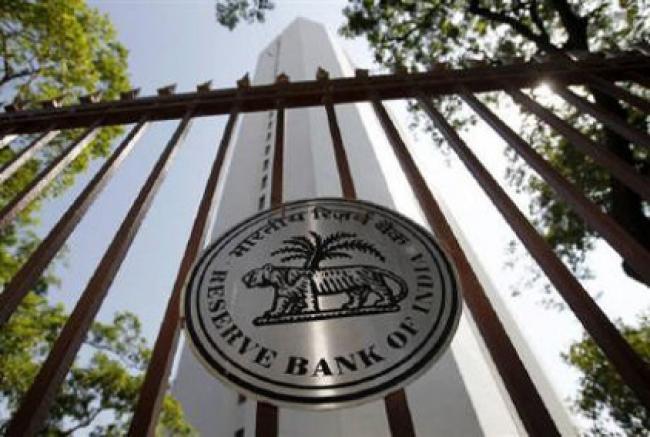 RBI Key Policy Rate
RBI Key Policy Rate
RBI may keep the key rates unchanged in first policy review after Budget 2022: Report
Mumbai/IBNS: The Reserve Bank of India (RBI) may keep key policy rates, including repo and reverse repo rates, unchanged in its monetary policy review to be announced on Thursday in the backdrop of Union Budget 2022-23 and growing inflationary concerns, ANI reported.
RBI's monetary policy committee started the three-day bi-monthly policy review on Tuesday and is scheduled to make the announcements on February 10.
All eyes are set on this policy review meet as it comes just nine days after the 2022 budget announcements.
It is also the last policy review of the central bank in the financial year 2022.
The repo rate, the interest rate at which the RBI lends short-term funds to banks, was reduced to 4 percent, while the reverse repo rate, the interest rate at which the RBI borrows from banks, was reduced to 3.35 percent in May 2020.
These policy rates have been maintained since May 2020.
On December 8, 2021, RBI's Monetary Policy Committeeuninanimously decided to maintain the status quo on policy rates and continue with its "accommodative policy stance."
Since Finance Minister Nirmala Sitharaman announced a massive capex boost in her budget, entailing a rise in borrowings, most experts have said the RBI may shift towards "neutral" from its "accommodative" stance.
Experts felt that the RBI may absorb the surplus liquidity from the economy, which it induced last year amid Covid-19 to boost economic activity.
In order to realise this, it may marginally increase the reverse repo rate, experts said.
A State Bank of India (SBI) research report recently pitched for a 20 basis points increase in reverse repo rate citing a massive spike in credit growth.
HSBC Securities and Capital Markets (India) also pitched for a 20 basis points increase in reverse repo rate saying it would send the right signal to the markets, according to the ANI report.
However, RBI may change the policy stance from "accommodative" to "neutral" and marginally increase reverse repo rate, some analysts have said.
But, the industry bodies continue to bat for a low-interest rate regime citing fragile economic recovery.
"Any move to tighten the monetary policy at this point of time could hurt the recovery process which the economy is hardly in a position to afford given the scale of disruptions in the last two years," said EEPC of India Chairman Mahesh Desai.
Analysts have said, RBI may not be too worried about inflation as the Finance Minister has not made any significant announcement to put money in the wallets of Indians to boost consumption.
All the big announcements made in the budget are related to long-term investments.
"The RBI will likely view the budget in a positive light and as growth supportive, owing to increased public capex (quality of spending) and directional fiscal consolidation," analysts at Japan's brokerage and investment bank Nomura said in a research note.
Meanwhile, a Reuters poll of economists forecast that the central bank will hike the reverse repo rate - the rate at which it borrows from banks - to 3.55 percent from 3.35 percent, narrowing the gap between the repo rate to 45 basis points (bps), according to a Money Control report.
The repo rate is expected to go up by 25 bps in the subsequent meeting in April, according to a little over half the respondents, while two-thirds expect one more similar-sized increase later in the year.
According to news agency PTI, last week analysts at Barclay's said: "The RBI will hike the reverse repo rate by 0.20-0.25 percent, given its liquidity management actions."
More and more economic experts have been suggesting that the central bank may hike the reverse repo rate because of the surprising hike in the government borrowing announced in the budget.
Support Our Journalism
We cannot do without you.. your contribution supports unbiased journalism
IBNS is not driven by any ism- not wokeism, not racism, not skewed secularism, not hyper right-wing or left liberal ideals, nor by any hardline religious beliefs or hyper nationalism. We want to serve you good old objective news, as they are. We do not judge or preach. We let people decide for themselves. We only try to present factual and well-sourced news.







